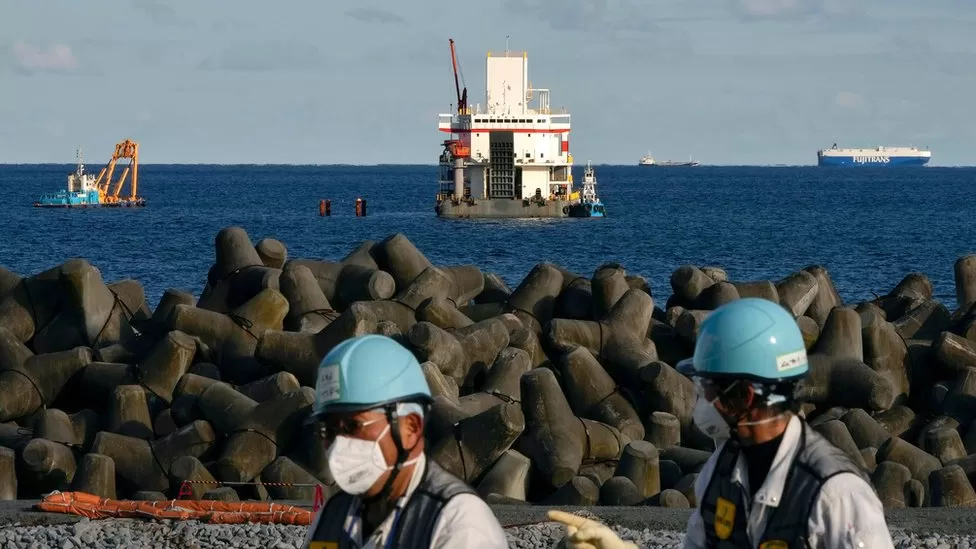nuclear disaster Japan to release treated water this week

Despite opposition from its neighbors, Japan will begin releasing treated wastewater from the tsunami-hit Fukushima nuclear plant into the Pacific Ocean on Thursday.
The UN’s nuclear watchdog approved the plan weeks ago.
Since the 2011 tsunami destroyed the plant, 1.34 million tonnes of water have accumulated – enough to fill 500 Olympic-sized pools.
After filtration and diluting, the water will be released over 30 years.
In response to a Cabinet meeting on Tuesday, Japan’s prime minister Fumio Kishida said that authorities will ask the plant’s operator to “promptly prepare” for the disposal to begin on 24 Aug if weather and sea conditions permit.
As a result of Mr Kishida’s visit to the plant on Sunday, speculation was rife that the release was imminent.
Decommissioning the plant, located on the east coast about 220km (137 miles) north-east of Tokyo, is a lengthy and costly process, and releasing the water is a necessary step.
For more than a decade, Japan has been collecting and storing contaminated water, but space is running out. The 2011 tsunami, triggered by a magnitude 9.0 earthquake, is regarded as the worst nuclear disaster since Chernobyl.
The exclusion zone was expanded as radiation leaked from the plant, forcing more than 150,000 people to evacuate. Since the Japanese government approved the plan to release water from the plant two years ago, it has caused alarm across Asia and the Pacific.
Fishermen in the region still fear discharging the treated water will tarnish the reputation of their catch and affect their livelihoods, although the impact on people and the environment had been concluded to be negligible.
Tepco has filtered the water to remove more than 60 radioactive substances, but the water will still contain tritium and carbon-14, radioactive hydrogen and carbon isotopes that cannot be easily removed from water. Although they emit very low levels of radiation, experts believe they are not a danger unless consumed in large quantities.
China has been the most vocal opponent of the plan in neighbouring countries. Japan was accused of treating the ocean like a “private sewer.”
However, South Korea has endorsed the plan and accused protesters of scaremongering.
Fukushima residents are also skeptical that the treated water will be safe, and many fishermen are worried that the release will affect their livelihoods.
Fish imports from around the world have been banned in both South Korea and China
